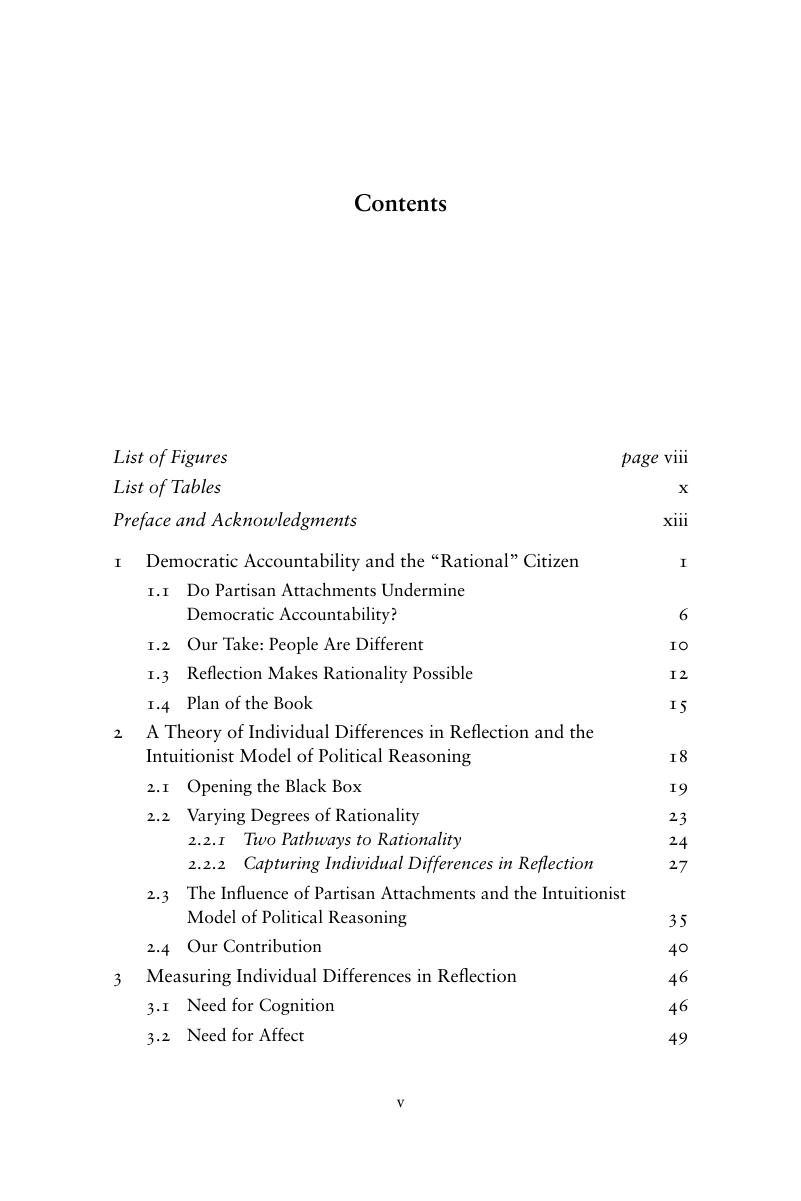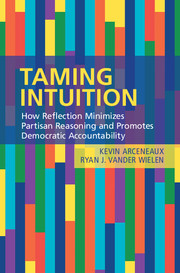Book contents
- Frontmatter
- Contents
- List of Figures
- List of Tables
- Preface and Acknowledgments
- 1 Democratic Accountability and the “Rational” Citizen
- 2 A Theory of Individual Differences in Reflection and the Intuitionist Model of Political Reasoning
- 3 Measuring Individual Differences in Reflection
- 4 Toeing the Line: Partisan Identities and Policy Attitudes
- 5 Throwing the Rascals Out: Partisan Identities and Political Evaluations
- 6 Can't We Disagree without Being Disagreeable? The Role of Reflection in a Polarized Polity
- 7 Reflections on the Role of Reflection in Democracies
- Appendix Details of Empirical Studies and Statistical Analyses\
- Notes
- References
- Index
Contents
Published online by Cambridge University Press: 30 August 2017
- Frontmatter
- Contents
- List of Figures
- List of Tables
- Preface and Acknowledgments
- 1 Democratic Accountability and the “Rational” Citizen
- 2 A Theory of Individual Differences in Reflection and the Intuitionist Model of Political Reasoning
- 3 Measuring Individual Differences in Reflection
- 4 Toeing the Line: Partisan Identities and Policy Attitudes
- 5 Throwing the Rascals Out: Partisan Identities and Political Evaluations
- 6 Can't We Disagree without Being Disagreeable? The Role of Reflection in a Polarized Polity
- 7 Reflections on the Role of Reflection in Democracies
- Appendix Details of Empirical Studies and Statistical Analyses\
- Notes
- References
- Index
Summary

- Type
- Chapter
- Information
- Taming IntuitionHow Reflection Minimizes Partisan Reasoning and Promotes Democratic Accountability, pp. v - viiPublisher: Cambridge University PressPrint publication year: 2017

